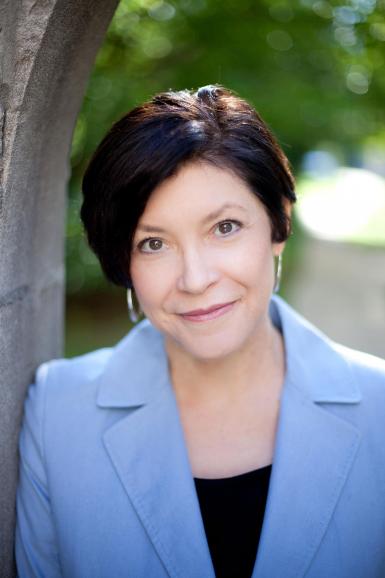Fashion media curriculum expands to meet student demand

After years of students pitching project topics related to fashion in her journalism courses, associate professor Lesa Major thought a course in fashion reporting would be popular. That first class ran out of seats almost immediately, without so much as a course description.
‘I thought, ‘This filled up so fast,’” Major said. “‘I think we do have an interest here.’”
Major has had an interest in fashion for a while herself, starting with a college boutique job, but said she didn’t think to combine it with media until her students started asking for it. That was in spring 2019 and now, two years later, Media School students have taken a range of courses in the last two years on the intersection of fashion, aesthetic and journalism, applying their knowledge in firsthand application of skills through project work or through academic approaches to topics in the realm of fashion and design.
Classes that have been offered include Politics and Fashion, an Introduction to Fashion, Beauty and Lifestyle Media and a Social Media and Fashion Reporting class, which would have included a 2020 spring break trip to New York City — students would have visited news organizations, design studios, corporate offices and fashion museums — but was canceled due to the COVID-19 pandemic. Major said she expects a public relations course to be added to the lineup as The Media School approaches formally adding fashion journalism as a specialization for students to add to their degree.
Nicole Krolewski, who graduated this month with a major in media and a concentration in media advertising, originally took a class with Major in her sophomore year for a degree requirement and liked her teaching approach so much that she tried to take classes with her whenever she could fit something in the years to follow. Major also sponsored her honors thesis, an academic study of feng shui, which stemmed from a conversation in one of these classes.
“I’ve always been super interested in interior design, but that was so far off from my major and the classes I was doing,” Krolewski said. “I took a fashion class with Lesa, which actually kind of inspired my thesis in feng shui, because Lesa and I would start to talk about interior design and things of that nature.”
Major said her approach in these classes has focused on synthesis, enabling students to critically think about the academic study of these topics as well as the practice of them while bringing in relevant issues such as sustainability and protest. This is accomplished through written responses, informal journaling, and final papers and projects depending on the class.
“They’re understanding across different platforms how to produce, analyzing content that’s out there, understanding the role of media, understanding human behavior and media effects,” she said.
In skills-based classes, students learn the practices and expectations of the field of coverage itself, bringing in practical skills needed for social media branding and usage. In the Politics and Fashion course, students analyzed the role of fashion and beauty media in large historical moments while bringing in other aspects — for example, Krolewski did a project on the afro movement, and said she never thought a hairstyle would be such a deep source of study.
“People should take these classes because the nature of her courses allows us to be so open-minded and apply our creativity in different ways, and it’s also challenging at the same time. When you’re getting so much freedom, it’s hard to develop something that’s so structural and can actually present well,” Krolewski said. “I think having that creative freedom is rewarding and extremely challenging, and I think everyone needs to experience that at least one time in your college experience.”
Major said that the best part of introducing these new classes has been expanding students’ understanding of fashion and beauty in an academic and journalistic sense.
“So many of them were coming to me saying, I never thought about fashion this way,” she said. “Nothing makes me happier than when students say, “’I never thought about this before.’”

